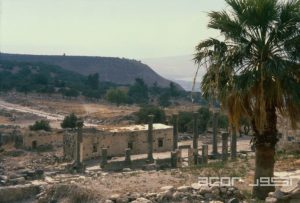Cultural Resources Management (CRM) is the commonly used professional term for long range strategies of conserving and managing archaeological and historical sites threatened by modernization. In the broadest sense, CRM is the vocation and practice of managing cultural resources such as places of archaeological, architectural, and historical interests and considering such places in compliance with environmental and historic preservation laws.
ACOR first became actively involved in CRM in 1986 when a grant from USAID established a pilot program in Cultural Resource Management in Jordan within the Department of Antiquities. ACOR provided a Cultural Resources Management advisor to the Department of Antiquities, who was to supervise archeological surveys, establish procedures for recording field data from endangered areas and expand the CRM program by training Jordanian personnel. The commitment of the Department of Antiquities and subsequent grants from USAID have ensured that serious archeological study is integrated into cultural tourism in Jordan.
ACOR’s current major Cultural Resource Management initiative is the Temple of the Winged Lions CRM Initiative in the Petra Park.
Major CRM projects undertaken by ACOR between 1986 and 1995
|
Restoration of the Amman Citadel and the Archaeological Survey of Greater Amman
|
||
|
ACOR supported archeologists and architects from the University of Jordan to develop an archeological park at ‘Ain Ghazal.
|
||
|
The early Islamic city of Ayla archeological park in Aqaba.
|
||
|
ACOR, with USAID funding, restored ruins in Um Qais and Pella and helped plan tourist facilities that were consonant with the traditional Ottoman architecture of the region.
|
||

Roman Street in Madaba (Photo by Rami Khouri) |
In Madaba. ACOR ran a CRM project, the Roman Street Complex, that served as a model for cultural preservation activities that involve the local community and generate employment. |




